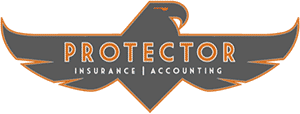Table of Contents
Best Property Insurance

Protector Insurance + Tax And Bookkeeping LLC offers the best property. In addition, we provide coverage on any property-related incidents and medical expenses incurred due to death on the premises.
Get Your Property Insured Today!
Call Protector Insurance + Tax And Bookkeeping LLC
At 843-707-7504 Now!
Factors To Consider When Choosing Property Insurance
Here are the things that one should consider before purchasing property insurance:
1. Covering Your Investment
Homeowners frequently shop the market for the lowest-priced agent. On the other hand, ethical agents don’t just aim to undercut the competition; they explain how your policy works and offer advice on crucial safeguards. Your policy’s structure insurance is a critical component. In particular, if your property is destroyed by a covered catastrophe, such as a storm, your insurance should provide a replacement cost. This figure is usually greater than your purchase price because it is based on current material and labor prices. Pinching a few dollars here could result in you not having enough funds to repair your home.
2. Policy Covering
Building, contents, and liability insurance are the three types of home insurance. You must, however, obtain detailed information about the coverage provided by your policy. Natural disasters, fires, and water damage are typical occurrences, but they should not be overlooked. Check your policy and inquire with your insurer. Flooding, earthquakes, mold, and sewage are optional coverages that could raise your insurance prices.
In most cases, the security is well worth the money. Even expensive insurance for these alternatives may be justifiable if you reside where flooding and earthquakes occur, considering the worst-case scenario of total loss. Mold and sewage damage, on the other hand, are typically inexpensive to include but might be helpful.

3. Deductibles
In most cases, you can negotiate deductibles. For each coverage category, policies may have an annual deductible. Deductibles range from zero to a percentage of the event’s cost, going into thousands of dollars. Maintaining $1,000 or higher deductibles can help you keep premium expenses in check. The logic is that a $1,000 to $2,000 incident is best compensated out of pocket to avoid a premium increase. Smaller deductibles and slightly higher premiums are available if you choose a lower out-of-pocket risk.
4. Contents And Liability
Choosing the appropriate amount of liability and content protection is also critical. Again, it’s about striking a balance between proper coverage and cost-cutting. The contents protect your treasures in your home. Insurance agents will frequently employ a fundamental calculation for each room in the house. If you have precious antiques or jewels in your home, you may need additional coverage or a separate rider. Liability insurance protects you if a third person on your property is injured or suffers property damage. Standard insurance typically provides the cover of a person during an occurrence. Higher coverage or a separate umbrella policy might protect you against hefty lawsuit fees if you have a pool or other potentially dangerous amenities.
5. Claim Process
Ascertain that the claim procedure is clear and straightforward. In the event of losses, you’ll want to get your claims paid out as soon as possible to get back to getting your property fixed.
6. Policy Fines
Never skip over the terms and conditions of a policy. Study the insurance materials thoroughly, from the associated fees to coverage exclusions and limitations. Contact your agent if you don’t understand or need to be adjusted.
Frequently Asked Questions
Homeowners insurance, often known as property insurance, protects your personal property and compensates you if damaged or destroyed. For example, your home is burglarized or destroyed due to a covered cause. In that case, homeowners insurance will assist you in replacing your valuables, repairing your property, or even rebuilding it.
Homeowners insurance covers various hazards you may face as a homeowner, which would otherwise be challenging to cover out of pocket. These are some of them:
- Damage to property
- Loss of personal belongings
- Personal liability
- Increased living expenses
If your home becomes uninhabitable, your homeowner’s insurance may cover the cost of temporary housing while your home is being restored or rebuilt.
The amount of property insurance is determined by the physical construction of your home and the total value of all of your personal belongings (e.g., furnishings, clothing, appliances, entertainment systems, etc.). Make an inventory of your belongings to ensure that you have an accurate estimate of their value. Your personal property is subject to restrictions and exclusions, so check with your insurance company to see how much coverage is appropriate for you.
The Best Property Insurance Company

Get The Most Affordable Property Insurance!
Call Protector Insurance At 843-707-7504 Now!
Protector Insurance + Tax and Bookkeeping, LLC
210 Bluffton Road, 2nd Floor, Bluffton SC 29910
843-707-7504
